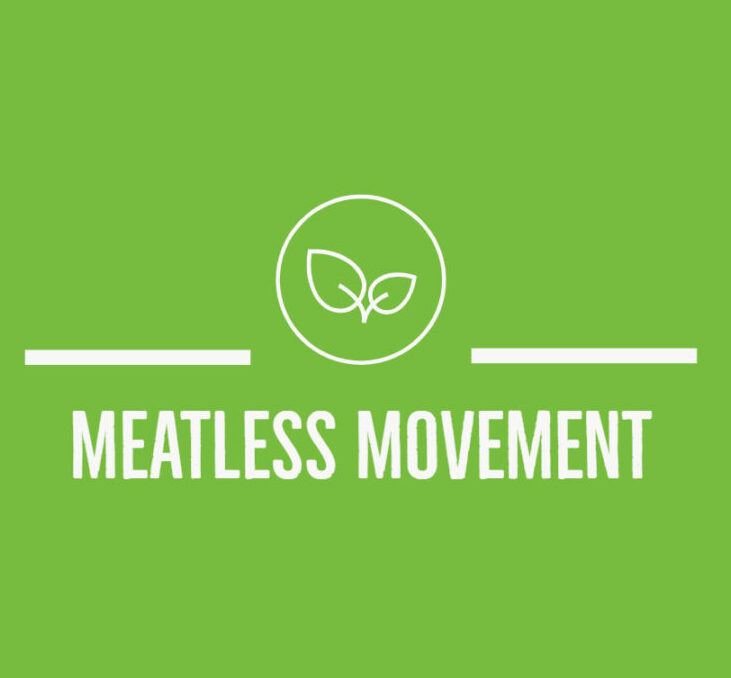Influenced by her family’s ethics, Janani was raised vegetarian in a South Indian Tamilian household. She started experimenting in the kitchen in college and, after graduating, continued using cooking as a form of relaxation and stress management. It was during her college years that she contemplated deviating from her vegetarian diet, influenced by the choices of those around her. However, her ethical values quickly grounded her.
Janani’s profound love for food and cooking evolved over time. The transition to college life was challenging, and the dining hall offerings were mildly palatable at best. Coupled with the stress of academic demands, she experienced significant weight loss during her initial year in college, prompting a realization that her relationship with food was broken.
Enter the world of cooking, a coping mechanism that Janani discovered in her third year of college. Starting with simple dishes like pasta, her culinary journey gained momentum when she realized she was passionate about cooking with meat substitutes. This newfound passion led her to a mission of transforming traditional non-vegetarian dishes into ethical and creative vegan versions.
Today, Janani’s culinary expertise is a result of countless trial-and-error experiments. Her experiences with cooking “fails” have deepened her understanding of ingredient combinations, modifications to elevate dishes, and the art of customization according to individual tastes.
Janani’s motivation to help others go vegan is twofold. First and foremost, she is vegan for the animals. The horrors animals go through are unmistakable, and she is a passionate voice for them. Secondly, she aims to debunk the notion that plant-based diets are boring, bland, or repetitive and prove that there is a world of flavorful and satisfying options for those who choose to eat less meat or abstain from it for personal or health reasons. Her passion for cooking and her journey of self-discovery in the world of vegan cuisine inspire her to share her knowledge and delicious creations with others, dispelling stereotypes and making plant-based eating a more accessible and enjoyable choice for all.
Please tell us more about yourself
We should all do whatever we can to reduce our impact on the #planet💙
✨Janani Kumar✨Vegan Blogger
I’m a born and raised Californian, with a South Asian South Indian heritage. My family is vegetarian and that’s how I was raised. When I went to college I faced a conundrum: eat meat to assimilate with my peers or stay vegetarian like I was raised. I realized that killing animals was something I never wanted to pay for. So I remained vegetarian, because it was the best course of action at the time.
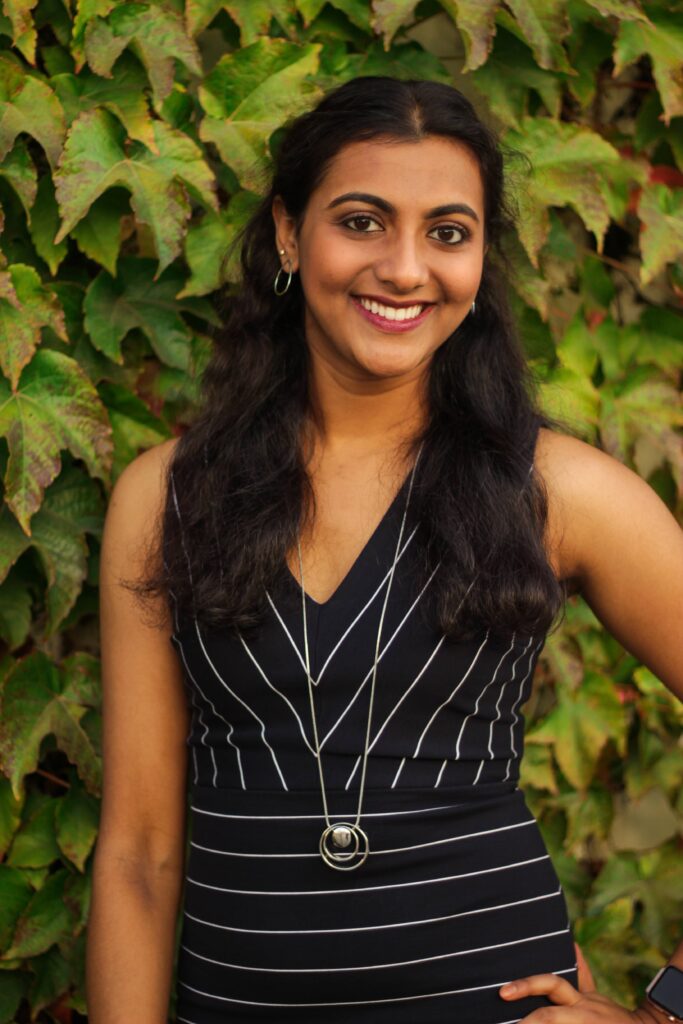
I was raised with this idea that milk and dairy were inherently cruelty free because the cow doesn’t die in order to be milked. Because of the role that milk, butter, and ghee play in Hinduism, dairy always seemed to find a central role in our cultural foods and festivals. But after seeing small clips of documentaries in college, the evidence of cow torture, suffering and murder was overwhelming and I knew I needed to stop supporting the dairy (and egg, for that matter) industry. It was a process- I will be the first to admit I did not go vegan overnight. I have been vegan for about 3.5 years.
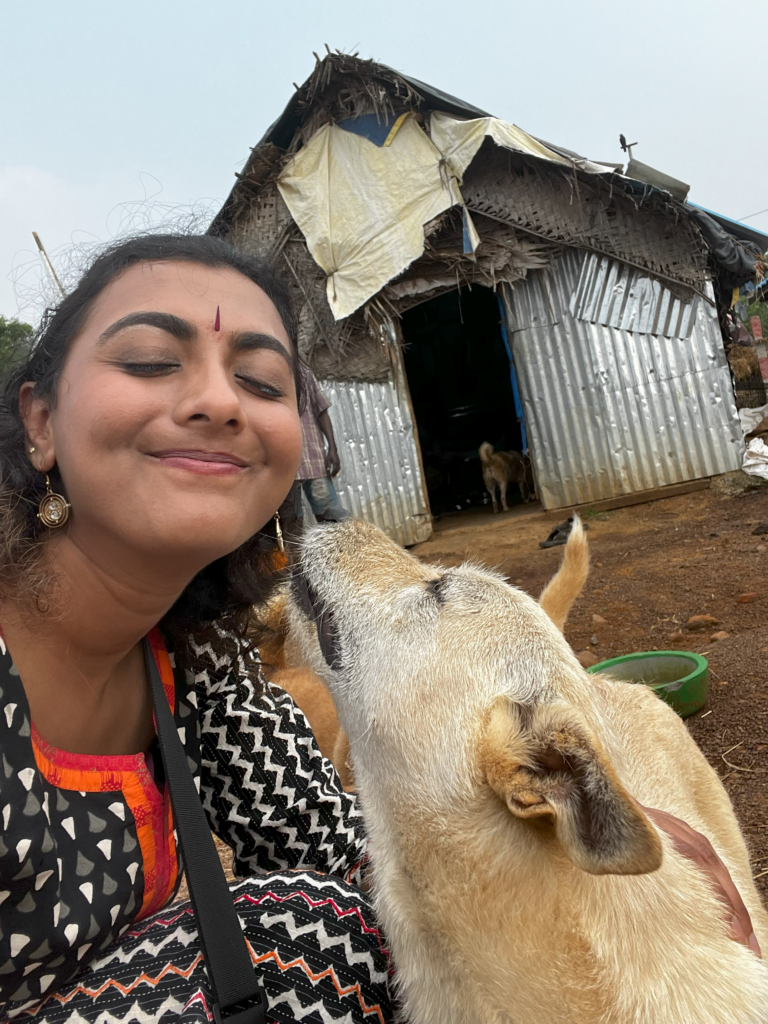
My family, especially my parents, have been incredibly supportive. I remember in March 2020 when the world shut down for Covid I had stopped eating all non vegan food except yogurt. Try as I did, I struggled to find a vegan yogurt recipe that worked for me so I could continue to eat my beloved curd rice. My mom sat and worked with me testing, tweaking, and ultimately cracking the code to the best, thick, carvable soy yogurt. I couldn’t have done it without her. My dad on the other hand, is a cooking wizard- I get my love for cooking from him. He would buy extra firm tofu, marinate it, and make the most convincing vegan paneer dishes so I would have delicious options at family dinner.
For all the research has shown time and again the benefits of a plant based lifestyle, the way we continue to approach nutrition is nothing short of abysmal.
✨Janani Kumar✨Vegan Blogger

I am very lucky to be in San Francisco- the vegan food scene here is great and most restaurants are familiar with the term and are happy to accommodate vegans. I will say that since vegans are still a minority, eating out with friends and coworkers has its challenges. My closest friends, partner, and family are very open and happy to plan dinner nights with plenty of vegan options. However, I have been in lunch situations with coworkers where I have only been able to order side dishes and still expected to split the bill equally, while everyone else ate entire sushi boats and steaks.
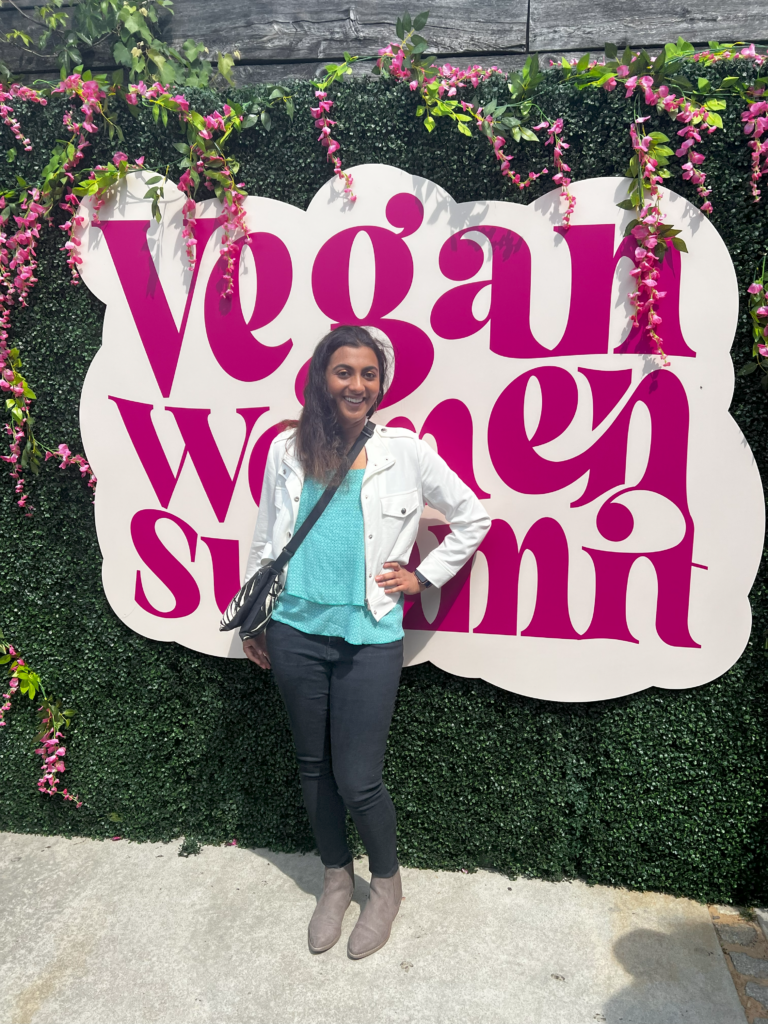
Speciesism is one of the things that irritates me the most about our society. Why do we place higher moral value on a dog or cat, than a pig or cow, when we know for a fact that they all feel the same pain? I was always cruelty free in my heart, and going vegan was the logical next step in aligning my actions with my morals.
Fill in the blank: vegan food is___
✨Janani Kumar✨Vegan Blogger

Encouraging others to embrace a plant-based lifestyle, I often pose the question: “What’s the harm in trying it?” There’s a mountain of evidence that shows the positive benefits to the climate, our health, and animal welfare when we reduce/cut out animal product intake. The worst that can happen is they won’t like it, but at least it may open their mind a little.
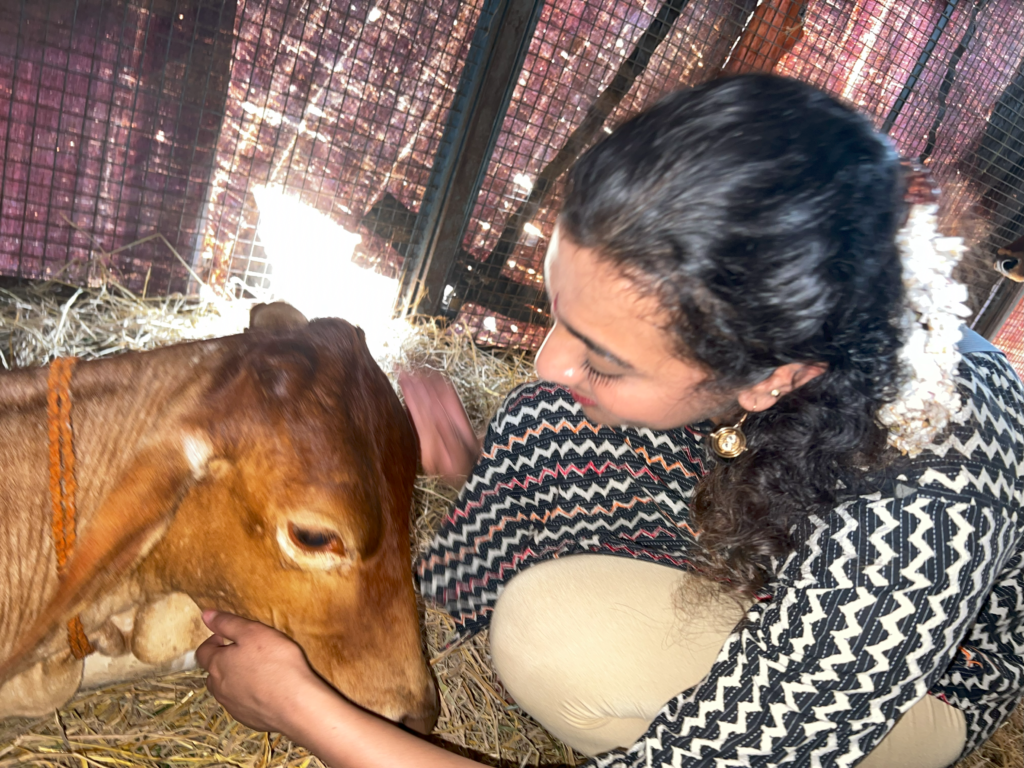
Most people just assume that meat/dairy/eggs magically appear on grocery store shelves- they don’t give a second thought as to how it got there. And this is how those industries continue to profit off of our gullibility
✨Janani Kumar✨Vegan Blogger
When it comes to exploring vegetarian and vegan dining options, I have a few go-to suggestions.
Asian cuisine, for instance, holds a special place in my heart because tofu plays a central role in so many of its dishes. In fact, in the Bay Area, there are several entirely vegan Asian restaurants like Enjoy Vegetarian, Loving Hut, Garden Fresh, Veggie Garden, Indochine, etc. You can also check out my blog myveggiehacks.com for a delicious homemade dumpling recipe. Indian food is another great place to start- just make sure if you are eating at a restaurant that the food isn’t slathered with butter or ghee. If you make it yourself at home, substituting coconut milk when following a recipe is an easy way to veganize a dish.
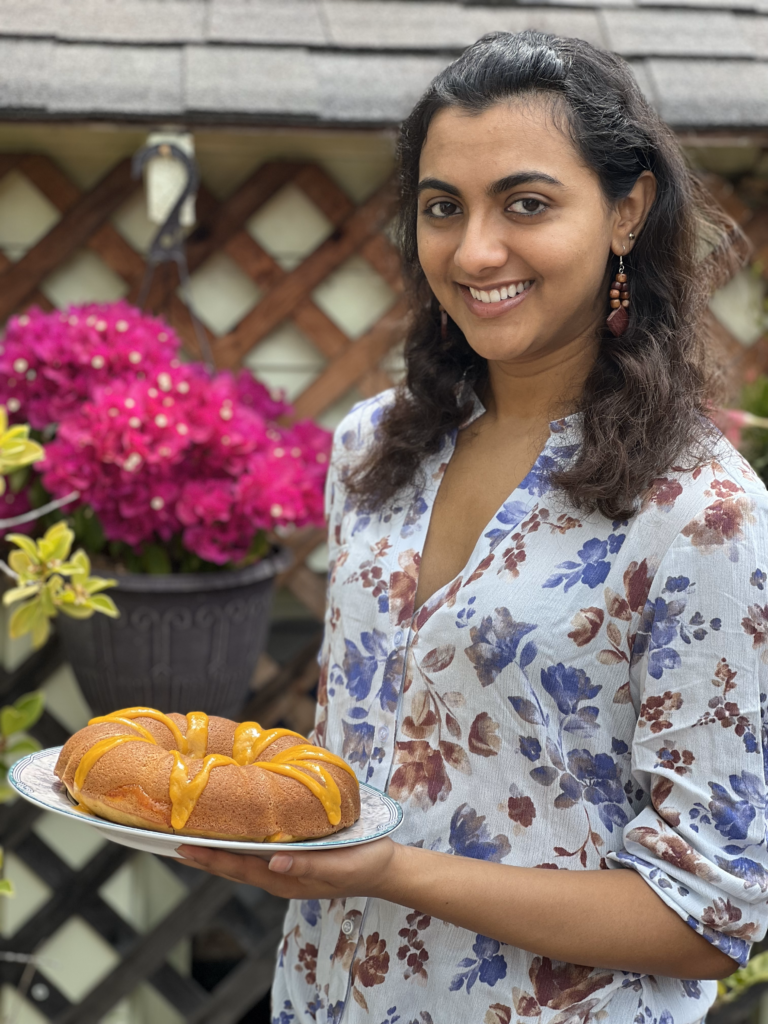
People either love or hate to hear this, but the best thing we can do for the planet on an individual level is eating plant based🌱
✨Janani Kumar✨Vegan Blogger
Vegans are portrayed as these radical tree huggers who talk down to all others. That is problematic because most of us are not that way. I promise! We have one goal only: to reduce animal suffering to the greatest extent possible. We know that being entirely cruelty free in an inherently non cruelty free world is not possible. But being open to constantly learning and improving is what veganism is truly about.
If you are just beginning to go meatless, here’s my advice. Give yourself room to make mistakes! I can’t tell you how many people I have spoken to who have told me they gave up on being vegan because they accidentally ate a gummy bear without knowing there’s gelatin in it, or ate some potato chips that had milk powder, etc. Learn from the experience and start again. The other day I accidentally took a sip of my dad’s chai that had cow milk thinking it was my oat milk chai. I’m not giving up on veganism because of it.

I have always loved to cook. I started a vegetarian (now vegan) food blog when I was in college to share original recipes as well as restaurant recommendations from around the world when I travel. What is remarkable is that the perception of vegans eating boring food could not be further from the truth. My cooking skills and creativity skyrocketed when I went vegan as I found myself experimenting with food in ways I would have never done otherwise.

I would like to thank Meatless Movement for featuring me and sharing my story. Thank you all for reading and I encourage you to take the first step in adopting a cruelty free lifestyle and reach out to me if you need support.
✨Janani Kumar✨Vegan Blogger
🌱 Recipes
🌱 Cruelty-free living
🌱 Sustainability enthusiast
🌱 Orangetheory lover
all images courtesy of ✨Janani Kumar✨Vegan Blogger
